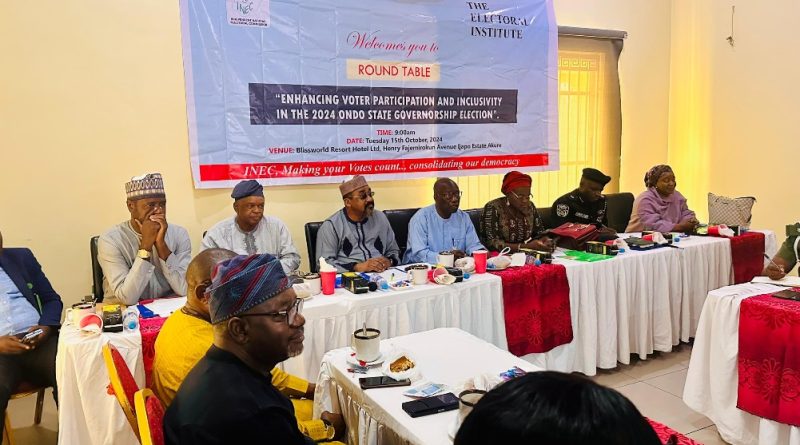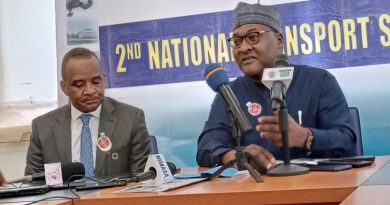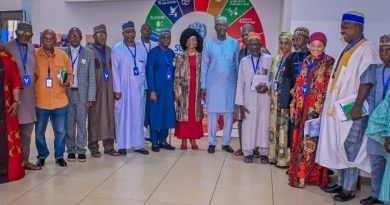ENHANCING VOTER PARTICIPATION: TEI Holds Workshop in Akure ahead of Ondo State Governorship Election
Oru Leonard
Ahead of the Ondo State Governorship election which comes up on Saturday, November 16, 2024, the Independent National Electoral Commission (INEC), through The Electoral Institute (TEI), organized a one-day Roundtable discussion on the theme: ENHANCING VOTER PARTICIPATION AND INCLUSIVITY IN THE 16th NOVEMBER 2024 ONDO GOVERNORSHIP ELECTION.
The event is part of INEC’s preparatory activities to the forthcoming Governorship Election in Ondo State. The Roundtable featured a paper presentation by Prof. Hassan Saliu, National President, Nigerian Political Science Association (NPSA), on the topic: Achieving Popular Participation and Inclusivity in the 2024 Ondo Governorship Elections.
In attendance were, Professor Adele Jinadu, Member Board of the Electoral Institute (BEI), who represented the Chair BEI, Professor Abdullahi Abdu Zuru. Resident Electoral Commissioner (REC) Ondo, Mrs Toyin Babalola, Director-General of The Electoral Institute. Dr Sa’ad Umar Idris, representative of Ondo State Commissioner of Police, Directors of Research and Documentation and Training, Prof. Ibrahim Sani and Dr Binta Kasim Mohammed respectively, as well as the Ondo State Administrative Secretary.
The lead paper presenter, Prof Saliu, touched on critical issues to the conduct of the forthcoming election such as major causes of voter apathy which includes: the electoral atmosphere, campaigns which are mostly centred towards personality development rather than people centred, current economic hardships, geography of the state, godfatherism in politics, nature and character of party primaries, Internal party wranglings, gender insensitivity etc.
The REC Ondo State who doubled as Discussant, Mrs Babalola acknowledged the fact that there has been a decline in voter participation over the years, and that has imolication for the electoral process in Nigeria. She identified the following as major causes of poor voter participation: i, poor accountability of leaders, ii. insecurity and violent tendencies – No voter wants to lose life or loved ones, iii. economic hardships, iv. logistics problems, v. perception for late opening of polls, vi. vote buying to the extent that the politicians keep their money until election day and voters await the highest bidder.
Professor Adele Jinadu, while serving as chair of the occassion and discussant, highlighted that the challenge of voter participation needs a multifaceted approach requiring a rethink and redirection of the current approach by civil society organisations in the country, focusing attention away from politicians to the generality of to the populace.
In his welcome remarks, the DG TEI, Dr. Sa’ad Umar Idris, noted that the Commission will continue to play key roles in engendering voter participation and inclusivity among the electorate through its voter education and advocacy. This submission entails putting both the structure and process in place in conducting elections. The structure implies the update of voter register, pasting of same in each PU during elections, early commencement of voting process on election day, the use of election technology such as BVAS, IReV, etc and availability of assistive aid for PWDs which is part of the responsibility of INEC in organising inclusive and participatory elections. And all the above are in collaboration with CSOs and other stakeholders whose support are critical and inevitable to the successful conduct of elections.
The interactive and contributions session featured deliberations on CSOs, NGOs, cultural and religious bodies contributions in helping to address electoral challenges such as poverty and its effects on voter apathy, vote buying etc.
The Roundtable ended with the following recommendations:
1. INEC to consider sustaining the use of SMS to mobilise for PVC collection in its 221 RAC and 18 LGAs collection centres in the state before the election.
2. INEC to note that this election is to be held during harvesting period, thus people might not turnout as expected on election day. Thus, INEC Ondo shall extent its hands of engagements to reach people through cultural associations and traditional institutions.
3. Over militarization and policing of the electoral environment sends bad perception and can affect voter participation.
4. Security personnel and Election officials are disenfranchise during every round of election. Something needs to be done to allow them cast their vote 24 hours before election day.
5. Sensitization on Voter’s right to RECALL elected officials should be looked into by INEC.
The Roundtable discussion were concluded by interventions from the DG, TEI, Prof. Adele Jinadu (Member, BEI and Chair of the Occassion), which finally brought the programme to a close with a Vote of Thanks by the Director Research & Documentation.




